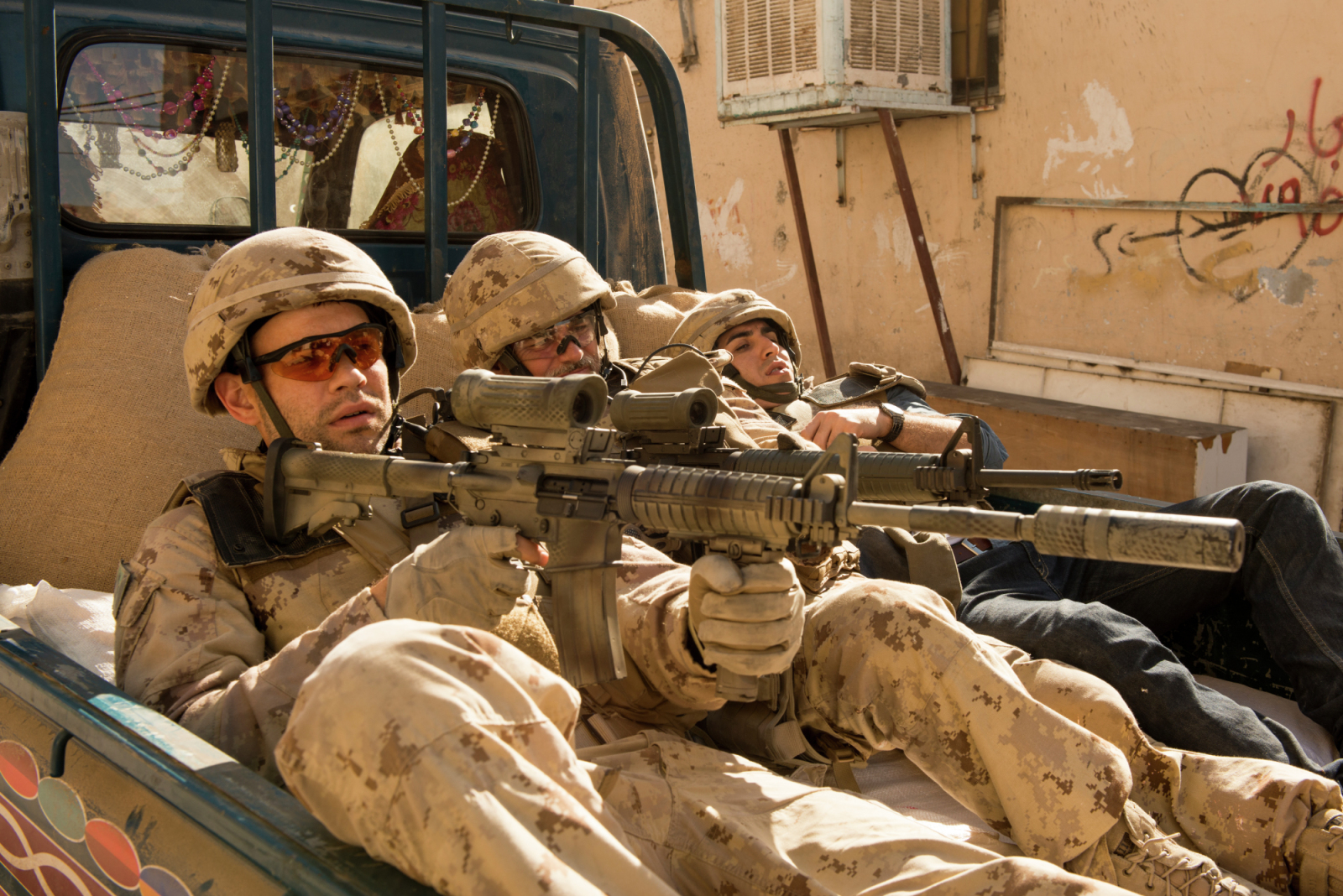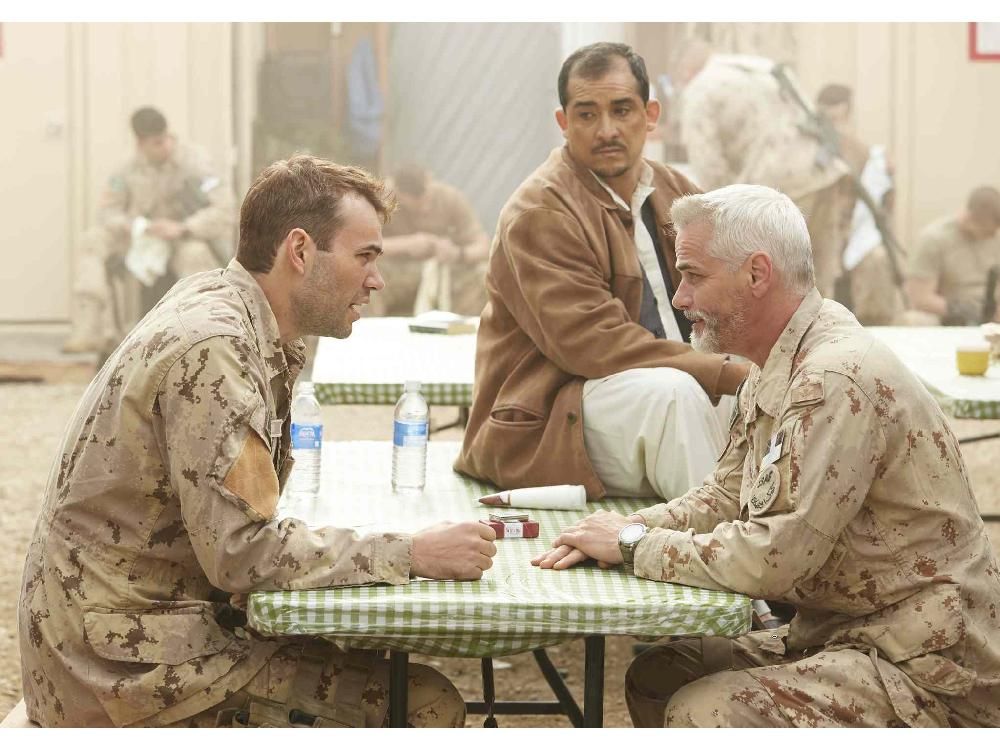Hyena Road (2015)

Directed by Paul Gross, “Hyena Road” (2015) stands as a poignant and gripping Canadian war drama that delves deep into the complexities and dangers faced by soldiers during the war in Afghanistan. Set against the backdrop of a volatile and treacherous landscape, the film intricately weaves together themes of duty, camaraderie, and the moral ambiguities inherent in modern warfare, offering viewers a visceral and thought-provoking exploration of the human experience in times of conflict.

The narrative of “Hyena Road” unfolds through the perspectives of three main characters: Pete, portrayed by Paul Gross himself, a Canadian intelligence officer tasked with navigating the intricate web of alliances and betrayals in Afghanistan; Ryan Sanders, portrayed by Rossif Sutherland, a sniper whose precise skills are essential in the fight against insurgents; and The Ghost, portrayed by Allan Hawco, a legendary Afghan freedom fighter who becomes a pivotal figure in the battle for control of the region.

Central to the film’s exploration is the relentless tension between the soldiers’ sense of duty and the moral dilemmas they face on a daily basis. As Canadian troops engage in intense combat missions and navigate the complexities of Afghan politics, they must grapple with questions of loyalty, honor, and the human cost of war. The portrayal of these soldiers as individuals with distinct motivations and fears humanizes their experiences, emphasizing the psychological toll of prolonged conflict and the bonds forged amidst the chaos of battle.

Director Paul Gross brings a meticulous attention to detail in capturing the harsh realities of warfare, from the blistering heat of the Afghan desert to the sudden eruptions of violence that punctuate moments of uneasy calm. The film’s cinematography immerses viewers in the visceral immediacy of combat, while its haunting score underscores the emotional weight of the soldiers’ sacrifices.

Thematically, “Hyena Road” explores the complexities of coalition warfare and the challenges of building trust among allies with divergent agendas. The interactions between Canadian forces, local Afghan fighters, and American counterparts reflect the intricacies of international intervention in a region fraught with historical and cultural complexities. The film does not shy away from depicting the ethical gray areas inherent in military operations, challenging audiences to confront the harsh realities faced by soldiers caught in the crossfire of geopolitical ambitions.

Beyond its exploration of geopolitical dynamics, “Hyena Road” is a testament to the resilience and camaraderie that define soldiers’ experiences on the battlefield. The bonds forged between Pete, Ryan, and The Ghost transcend cultural barriers and ideological differences, offering glimpses of humanity amidst the devastation of war. These relationships underscore the film’s exploration of honor and sacrifice, highlighting the courage required to confront uncertainty and uphold principles in the face of overwhelming odds.

Critically acclaimed for its authenticity and emotional depth, “Hyena Road” received praise for its nuanced portrayal of the Afghan conflict and its impact on those who serve. The film’s ensemble cast delivers powerful performances that resonate with authenticity, capturing the complexities of soldiers’ lives and the moral dilemmas they confront in the pursuit of justice and stability.

In conclusion, “Hyena Road” (2015) stands as a compelling and thought-provoking portrayal of war and its profound impact on individuals and societies. Paul Gross’ directorial vision, coupled with the film’s poignant narrative and authentic performances, ensures that it resonates as a significant contribution to the genre of war dramas. As audiences immerse themselves in the harrowing journey of Pete, Ryan, and The Ghost, they are reminded of the enduring complexities of conflict and the enduring spirit of those who face it with courage and resilience.











